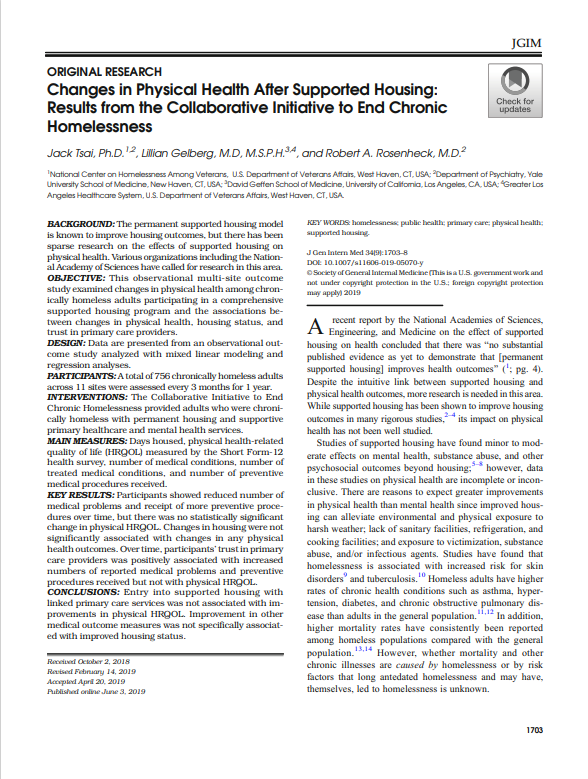Headline
A permanent supportive housing program did not improve most measures related to physical health for individuals experiencing chronic homelessness, but did improve access to and trust in primary care.
Context
Permanent supportive housing has been shown to improve outcomes related to housing and behavioral health. While individuals experiencing homelessness have higher rates of chronic health conditions, there is limited evidence on how these programs affect physical health. The Collaborative Initiative to Help End Chronic Homelessness demonstration program provided permanent housing and supportive primary health care and mental health services to individuals experiencing chronic homelessness. This study examined how participation in the program affected physical health outcomes as well as trust in primary care providers and housing status over 12 months.
Findings
Program participants experienced greater preventive care and trust in their primary care provider, but notably did not report a significant change in health-related quality of life. Changes in housing were not found to affect physical health outcomes within this study.
Takeaways
A permanent supportive housing intervention did not improve most measures of physical health outcomes, but did improve trust in the primary care provider which may be a key first step to improved health. Permanent supportive housing interventions for individuals experiencing chronic homelessness may be delivered too late to affect their chronic health conditions, and these programs may need to be evaluated over a longer time period to understand how improved trust and access to preventive care may lead to improved health.


